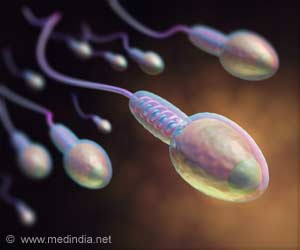A study suggests that men treated with COVID-19 have decreased levels of fertility-related proteins in their semen due to deficiency of two proteins.

‘The researchers say that the pilot study suggests that even mild or moderate illness could change levels of proteins linked to male reproductive function.’





Although SARS-CoV-2 mainly affects the respiratory tract, the virus — and the body’s response to it — can damage other tissues. Recent evidence suggests that COVID-19 infection may reduce male fertility, and that the virus has been detected in the male reproductive organs. Firuza Barik and Rajesh Barik at Jaslok Hospital, Sanjeeva Srivastava and colleagues at the Indian Institute of Technology wondered if the COVID-19 infection would have a long-term impact on the male reproductive system. To find out, they decided to compare the levels of proteins in the semen of healthy men and those who had previously had mild or moderate Govt-19 disease.The researchers examined sperm samples from 10 healthy men and 17 men who had recently recovered from COVID-19. None of the men between the ages of 20 and 45 had a prior history of infertility. The team found that recovered males had significantly reduced sperm count and motility and less normal-shaped sperm than males without COVID-19. The researchers examined sperm proteins in the semen using liquid chromatography-tandem mass spectrometry and found that 27 proteins were present at high levels and 21 proteins at low levels in COVID-19-recovered men compared to the control group.
Many proteins are involved in the reproductive process. Two fertility-related proteins, semanogelin 1 and prosaposin, were less than half of the semen of the COVID-19-recovered group than the sperm of the controls. Researchers said that these findings suggest that SARS-CoV-2 may directly or indirectly affect the reproductive health of men and may persist even after recovery. They further state that this work may also reveal insights into the pathophysiological physics of human reproduction in recovered men. However, they point out that major studies need to be done to confirm these findings, including the control group of men who have recently recovered from other flu-like illnesses to confirm that the findings are specific to COVID-19.
The study authors acknowledge funding from Jaslok Hospital.
Advertisement











